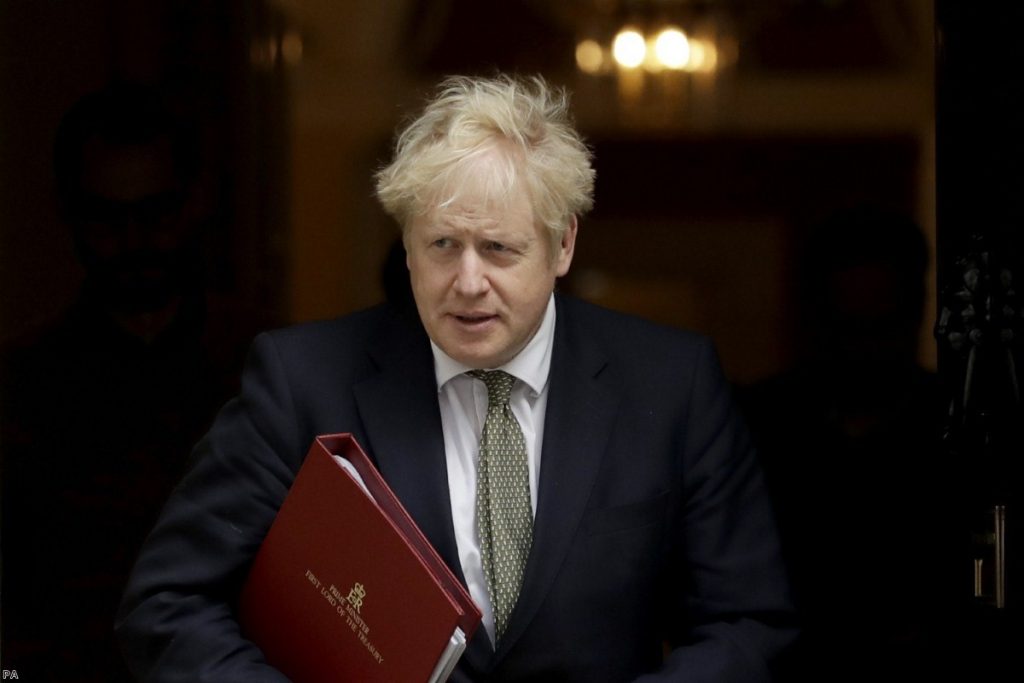By Dominic Pimenta
In early March, it seemed that the government's covid strategy was to pursue deliberate, possibly controlled, herd immunity. As Johnson put it in his Greenwich speech in February, ministers would "take off our Clark Kent glasses" and be a "champion freedom of exchange".
This reckless policy led to a U-turn and a prolonged lockdown. It was the worst of all worlds, economically and for the virus. Other countries emerged into a controlled environment with vanishingly low case numbers and many returned to near normal by late April. We had to continue far longer, dealing with the huge build up of cases we already had, and still came out too early.
We all understand the R number by now – the number of people an infected person will go on to infect. The time between the first person being infected and the next is the generation time. In covid's case, it is around six days. This gives you a speed of infection. Any R over 1 means cases will continue to grow, while any R under 1 means cases are shrinking. Like a car parked on the edge of the cliff, speed isn't really the important factor. It's the direction of travel that is utterly vital.


We are now in this confusing state, with every region in the UK reporting an R above 1. Many regions in economically damaging Tier 3 restrictions are still posting case numbers increasing. We are parked on the edge of that cliff and – albeit slower than in the spring – driving forwards.
The government seems to take reductions in the R as de facto success, but any R above 1 is still failure. We are still in forward drive. Cases and deaths continue to mount up. Regions in Tier 3 where the R is above 1 will continue to have drawn-out economic damage, like an engine spluttering and straining against a handbrake but edging forward anyway. This is self-harm without material benefit.
There are significant important advantages to a slower spread of the virus. It means the NHS doesn't get overwhelmed instantly. But eventually, unless we get a handle on things, it will be overwhelmed regardless. We'll still end up off that cliff.
There are only two conceivable strategies the government can be pursuing. The first is to drive cases into remission – in other words, to put the car into reverse. This means going further than just getting R below 1. Even at 0.9, the infection rate could remain static at a high level and we'd be overwhelmed anyway. It means getting it far below 1.
This would mean meaningful reductions in case numbers again, to whatever threshold our track and trace system can actually keep up with. Unfortunately we don't know what that level is, because track and trace is such a shambles. Is it 1,000 cases a day? 10,000? Every day we make it harder – nearer to 100,000 than 10,000.
If we aren't trying to reduce case numbers anymore, if we aren't trying to get into reverse, then what are we doing? If the R remains above 1, cases continue to double. And then we will be overwhelmed – but in months rather than weeks. This slow drive forward will require mass restrictions and economic hurt anyway. The government must know this.
So what does that leave us with? This can only be herd immunity once more, by the backdoor. A conscious choice to allow increasing infection, to build up again to March levels, and to allow the deaths of tens, if not hundreds of thousands of people.
The fog of arguments over the summer – about pre-existing immunity, false positives, dead fragments of virus – have dissipated in the blistering heat of this ferocious pathogen once more. We are left with steady growth of the virus, now over 200 deaths a day, and a government that's either actively encouraging the virus to spread or incompetently failing to control it.
Either way, we need drastic change now. We have edged perilously close to the precipice.
Dr Dominic Pimenta is a London-based doctor and writer. His book Duty of Care, is available now. All royalties from book sales go to Heroes, a charity supporting healthcare workers. You can follow him on Twitter here.
The opinions in Politics.co.uk's Comment and Analysis section are those of the author and are no reflection of the views of the website or its owners.












